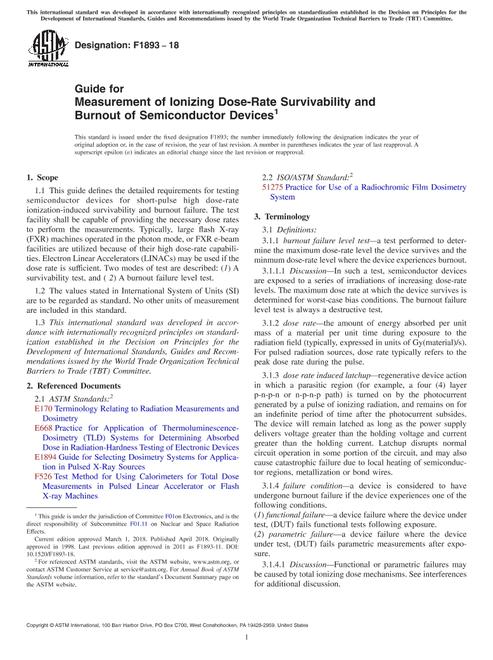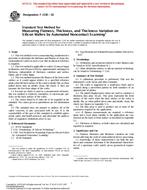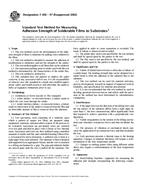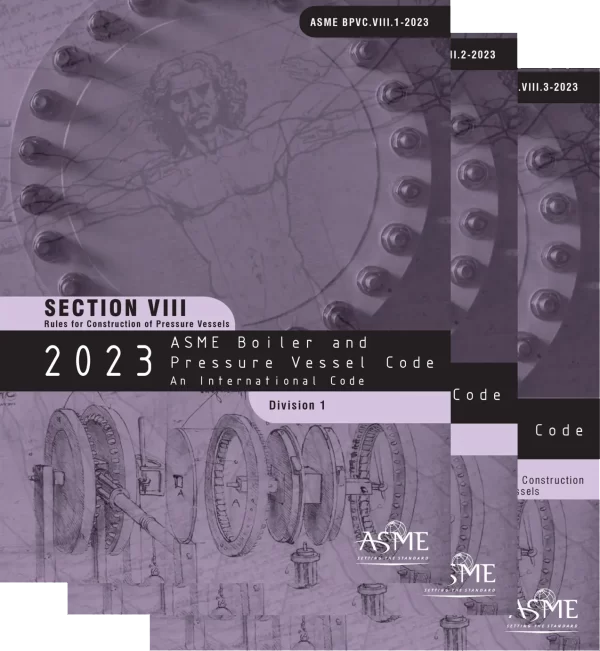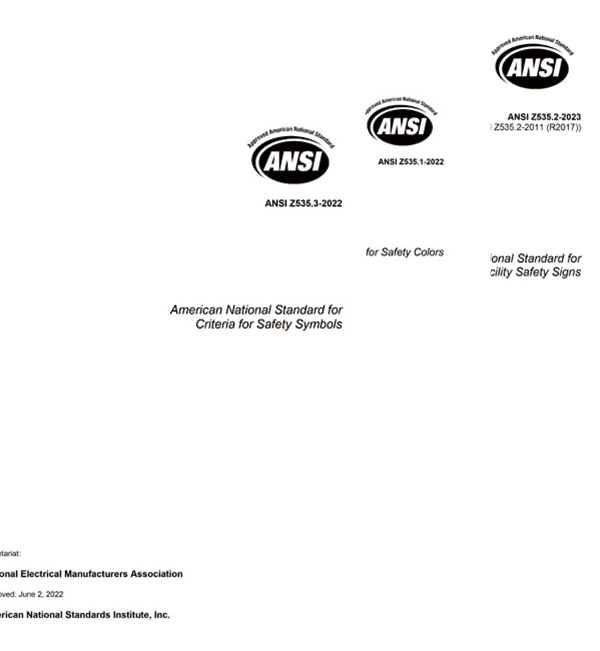ASTM E1392-96(2002)
2002
Standard Practice for Angle Resolved Optical Scatter Measurements on Specular or Diffuse Surfaces (Withdrawn 2003)
- Format:
- Language(s) :
- Published :
- English
- 01/01/2002
This standard was transferred to SEMI (www.semi.org) May 2003
1.1 This practice explains a procedure for the determination of the amount and angular distribution of optical scatter from an opaque surface. In particular it focuses on measurement of the bidirectional reflectance distribution function (BRDF). BRDF is a convenient and well accepted means of expressing optical scatter levels for many purposes (1,2). Additional data presentation formats described in Appendix
1.2 Optical scatter from an opaque surface results from surface topography, surface contamination, and subsurface effects. It is the user's responsibility to be certain that measured scatter levels are ascribed to the correct mechanism. Scatter from small amounts of contamination can easily dominate the scatter from a smooth surface. Likewise, subsurface effects may play a more important scatter role than typically realized when surfaces are superpolished.
1.3 This practice does not provide a method to extrapolate from data for one wavelength to data for any other wavelength. Data taken at particular incident and scatter directions are not extrapolated to other directions. In other words, no wavelength or angle scaling is to be inferred from this practice. Normally the user must make measurements at the wavelengths and angles of interest.
1.4 This practice applies only to BRDF measurements on opaque samples. It does not apply to scatter from translucent or transparent materials. There are subtle complications which affect measurement of translucent or transparent materials that are best addressed in separate standards (see Practice
1.5 The wavelengths for which this practice applies include the ultraviolet, visible, and infrared regions. Difficulty in obtaining appropriate sources, detectors, and low scatter optics complicate its practical application at wavelengths less than about 0.25 [mu]m. Diffraction effects that start to become important for wavelengths greater than 15 [mu]m complicate its practical application at longer wavelengths. Diffraction effects can be properly dealt with in scatter measurements (3), but they are not discussed in this practice.
1.6 Any experimental parameter is a possible variable. Parameters that remain constant during a measurement sequence are reported as header information for the tabular data set. Appendix X3 gives a recommended reporting format that is adaptable to varying any of the sample or system parameters.
1.7 This practice applies to flat or curved samples of arbitrary shape. However, only a flat, circular sample is addressed in the discussion and examples. It is the user's responsibility to define an appropriate sample coordinate system to specify the measurement location on the sample surface for samples that are not flat.
1.8 The apparatus and measurement procedure are generic, so that specific instruments are neither excluded nor implied in the use of this practice.
1.9 This standard does not purport to address the safety concerns if any, associated with its use. It is the responsibility of the user of this standard to establish appropriate safety and health practices and determine the applicability of regulatory limitations prior to use.
| ASTM E1392-96(2002) | |
|---|---|
| STANDARD INFO: | |
| Standard Name | ASTM E1392-96(2002) |
| Scope | Standard Practice for Angle Resolved Optical Scatter Measurements on Specular or Diffuse Surfaces (Withdrawn 2003) |
| Publisher | ASTM - ASTM International |
| Languages | English |
| State | [ Withdrawn ] |
| Publication Year | 2002 |
| Most recent Version | MOST RECENT |
| Whether to be replaced | |
| Addendum | |
| FILE INFO: | |
| File Size | 1 file , 96 KB |
| Note | This product is unavailable in Russia, Ukraine, Belarus |
| Number of Pages | 12 |
| Published | 01/01/2002 |
| ASTM E1392-96(2002) | ||
|---|---|---|
| History | Publisher Year | |
| ASTM E1392-96(2002) | 2002 | Current |
| ASTM E1392-96 | 1996 |
Related products
- Format:
- Language(s) :
- Published :
- English
- 03/01/2018
$37
- Format:
- Language(s) :
- Published :
- English
- 12/10/2002
$32
- Format:
- Language(s) :
- Published :
- English
- 12/10/2002
$29
- Format:
- Language(s) :
- Published :
- English
- 01/10/2002
$26

Over 3,000,000 global standards
Our standards library is extensive, with over 2 million documents, ensuring we meet the needs of various industries. Whether it’s ASME, DIN, ASTM or ISO and other internationally recognized standards, we offer complete documents and the latest versions to help customers adhere to industry regulations in their projects. Whether your needs are technical standards, regulatory requirements, or design guidelines, our standards library provides comprehensive support.
24 online customer service
Our team includes up to 50 engineers from fields such as healthcare, electronics, and construction, who can answer your technical questions and ensure you find the correct and accurate standard documents. We are dedicated to helping you find the best solution that meets your needs.

Thanks to the StandardsClub customer service team for helping me find the ASME BPVC-2023 SET I was looking for in a high-quality PDF version. Their assistance was excellent, and the document quality exceeded my expectations!
This standard document is very detailed, covering all relevant technical points, and provides comprehensive guidance for my project. The ANSI/NEMA Z535 SET was exactly what I needed, and I am very satisfied with the quality!
The purchasing process was straightforward, the price was very competitive, and the download was quick. The Tissue Engineering Standards Addressing Product Quality and Characterization Package was of excellent quality and provided all the information I needed. Definitely a great value for the price!
“Got questions? Our professional customer service is ready to assist you anytime. Whether it’s finding documents, getting discounts, or navigating the purchase process, let us help you get the standards you need!”

Sign Up Our Newsletter
Don’t miss out! Subscribe now to get exclusive offers and industry insights!
We care about your data in ou privacy policy.


